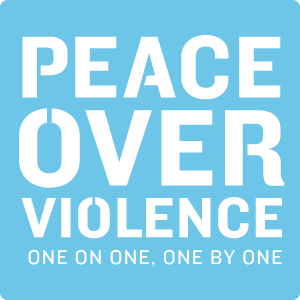Project Safe Haven
COVID-19 has further exposed and exacerbated gross inequities in our communities and overall society. The need for more resources and creative ways to sustain and expand support for community members quickly became not only apparent, but urgent.
Snapshot
To date, POV has served 122 domestic violence survivors and family members in shelter placement through Project Safe Haven.
In what feels like the faraway times of pre-COVID, domestic violence (DV) and sexual violence (SV) existed as global pandemics in and of themselves; one in three women and men have experienced contact sexual violence, physical violence and/or stalking by an intimate partner during their lifetime.¹ Trans survivors were three times more likely to report being stalked compared to cisgender survivors. Trans women were three times more likely to report experiencing sexual and financial violence than survivors who are not trans.²
The coronavirus greatly affected both DV and SV in various harmful ways, with many people having to quarantine with abusive partners and children being isolated from possible support and safety networks that their schools and community programs once offered to them in person. Undocumented survivors are experiencing unique vulnerabilities due to the pandemic; with many undocumented people working in service sectors, like restaurants and hospitality, many are faced with additional financial hardships, increased challenges to accessing medical care, and growing immigration fears due to the current political climate in the U.S.³
As an emergency response, the city of Los Angeles developed Project Safe Haven, with Peace Over Violence being a continued partner, in this city-wide program whose mission is to offer emergency support services to victims and survivors of domestic violence.
Project Haven began in April 2020 with a donation from Rihanna and Jack Dorsey of $4.2 million to the city of Los Angeles to provide relief to victims and survivors and their children. Work immediately began soon after the donation was made to develop an action plan, identify key community partners and develop and implement appropriate services.
Within days, Peace Over Violence case managers, on-call staff and supervisors underwent training to work on the frontlines of the epidemic within an epidemic. The program had its own hotline which officially became live on April 17, 2020 and the official Project Safe Haven program was up and running the following day, with shelter placements taking place on May 7th.
We were one of nine direct service agencies who partnered with the city of Los Angeles in offering critical services to survivors. The city secured various hotels and housing developments to offer as housing, $100 food cards every week, and transportation. The shelter space had one to two bedrooms, a kitchenette and a washer and dryer; all within a confidential location for the physical safety of the individuals and families.
In tandem, POV helped in providing direct services while continuing to answer hotline calls. The services included:
comprehensive case management;
on-call support and emergency needs;
legal advocacy;
on-site visits;
safety planning, restraining order assistance, and pick-ups and drop-offs;
food, clothes, toiletries, laundry detergent, diapers and other various in-kind donations;
advocacy services as needed;
tablets for children.
Along with our Project Safe Haven partners, we were able to serve 1,070 program participants within a 10-week period.
Given that at the inception of this city-wide initiative, no one knew how long stay-at-home orders would be in place. Our current reality shows that COVID-19 will be around for much longer and so Project Safe Haven has been extended, as well as our commitment to making this program a success and to supporting victims and survivors and their families.
Eliminating domestic and sexual violence from our homes, relationships and communities will be one day possible through coordinated efforts from partnering agencies and through your own continued support of the survivors in your life. This goal may feel as far as the moon, but it is something that must continue to be addressed and fought for- survivors deserve to be supported in their healing and we all deserve to live in a world free from violence.



